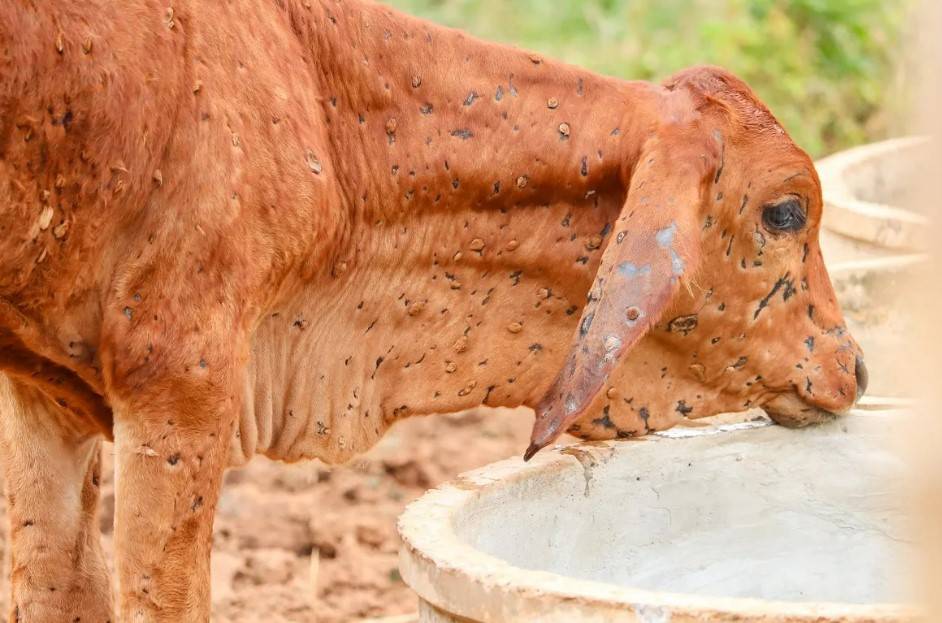
Lumpy skin disease (LSD) that has created havoc in Rajasthan, Gujarat, Punjab, and a few other states is a viral disease caused by Capripoxvirus. It is basically transmitted by arthropod vectors like mosquitoes, biting flies, and ticks. The disease mainly occurs in cows and sometimes in buffaloes.
Dr. Ashwani Kumar, Head of Department, Veterinary Medicine, Guru Angad Dev Veterinary and Animal Sciences University (GADVASU), Ludhiana informed that the disease is characterized initially by fever followed by the development of cutaneous nodules (2-5 cm) all over the body. In some animals, lesions might involve the mouth, pharynx & respiratory tract, and cause pneumonia, enlarged lymph nodes, edema of limbs or brisket region.
He said many infected animals usually recover but there is a reduction in milk yield in lactating cows for several weeks. The morbidity rate is usually upto 50 percent and the mortality rate is usually around 1-5 percent. The disease is not zoonotic (not spread to human beings), and hence milk is safe for human consumption following pasteurization/ boiling.
Tips for treatment of lumpy skin disease
Dr. Ashwani shared important tips for the treatment of lumpy skin disease. He said that many of the affected animals can be managed or cured with commercially available antipyretics such as vetalgin, meloxicam, ketoprofen etc. However, if fever persists or the animal shows nasal discharge/ respiratory signs, antibiotics like ceftiofur, enrofloxacin, or sulphonamides are administered to check for secondary infection.
Moreover, the application of antiseptic ointment with fly-repellent properties can be applied over the skin. Affected animals must be treated at the farm itself; they should not be transported to hospitals or polyclinics, as high fever or hyperthermia often develops in these animals because of high environmental temperature and humidity.
He also described some prevention measures. Don’t purchase/ enter new animals into your herd during this outbreak period. Restrict animal movement, and abstain from the participation of your animals in cattle fairs, shows etc. Make efforts to minimize vector populations (ticks, flies, mosquitoes, fleas, midges) at your farm. Vaccinate all healthy animals of your herd with LSD /Goat Pox Vaccine as per manufacturing company’s guidelines.









